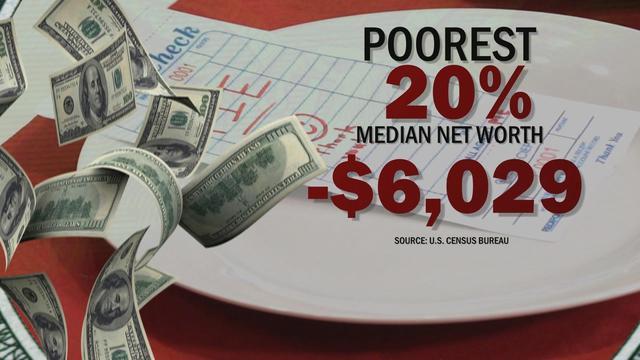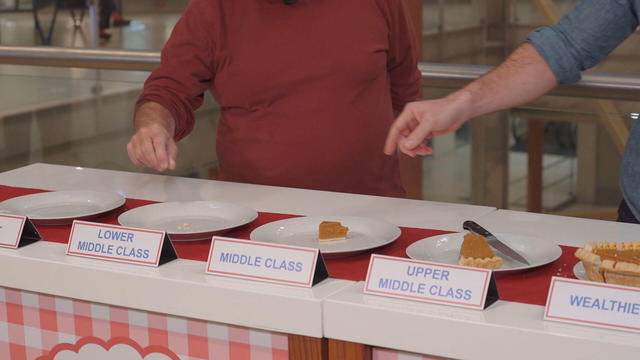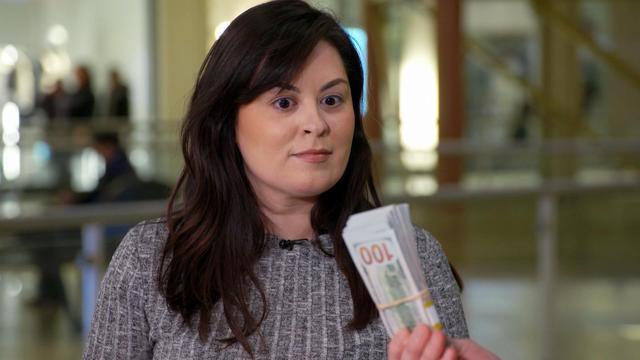How $98 trillion of household wealth in America is distributed: "It's very depressing"
The gap between rich and poor in America is the worst it's been in more than a half century. It's a concern cited by every leading Democratic presidential candidate in the 2020 election, but many may not realize what it actually means.
If a pie represented the estimated $98 trillion of household wealth in the United States, nine pieces, or 90% of the pie, would go to the wealthiest 20% in the country, according to a National Bureau Of Economic Research study of household wealth trends in the united states from 1962 to 2016. Out of those nine slices, four would go to just the top 1%.
The upper middle class and the middle class would share one piece, or about 10%, and the lower middle class would get .3% of the pie. The poorest Americans, people in the bottom 20%, wouldn't get any. On average, they are more than $6,000 in debt.
People presented with this image of the country's wealth distribution were surprised.
Trending News ›
Beberlee Maldonado said it wasn't what she expected and called it "disturbing."
"It's very sad. It's very depressing," Jessica Ortiz told "CBS This Morning" co-host Tony Dokoupil, adding that she grew up in the poorest category.
In the 2020 election cycle, Democratic candidates Senators Elizabeth Warren and Bernie Sanders have promised to redistribute the pie with a special tax on fortunes $50 million and up.
"The wealthiest people in this country will start paying their fair share of taxes," Sanders said on the campaign trail in May.
Polls show most Americans support the idea. Asked if she thinks there should be an extra tax on the super wealthy, Maldonado said, "Why not? They could afford it."
"They should," said another woman, Adriane Huff. "Will it happen? Probably not."
Not everyone is on board with the tax.
"That's against sorta the American way," said John Sheffield at the New York Boat Show. "It would be a total disaster … And I'd actually like for them to continue to promote it because they won't get elected in that way."
Sheffield and Mark Tedford run an investment firm in Connecticut.
"Wealth redistribution is always popular amongst the masses who don't have the wealth and not popular amongst the 1% that do," Tedford said. "But it doesn't make economic sense to me."
Asked to explain why, Tedford said, "I guess the alternative is, do we need a socialist economy where everyone has the same? That doesn't make sense either. A lot of people who have a lot have earned it and made it.
"They've started their own companies, they've grown businesses, they've worked hard, they've gotten good degrees, they've gone to school. They may have had more opportunity than others, but there's a lot of people who just haven't done that."



No comments:
Post a Comment
Ameya jaywant narvekar